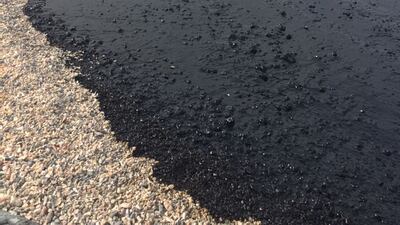The third oil spill in Fujairah this year – the fourth in three months to hit the shores of the UAE – highlights the pressing need to impose penalties and sanctions on vessels and tankers that deliberately dump their oil-laden ballast into the country’s waters.
The environmental effect of these intentional acts is enormous. They affect natural habitats and endanger marine biodiversity and the ecosystem. The first oil spill, which occurred in March, coincided with the breeding season of certain types of fish. Fish eggs can be harmed by hydrocarbons and marine fauna and flora can suffer irreparable damage, which in turn would affect birds and endangered species that feed on them.
The economic repercussions of shoreline oiling are many. The most recent oil spill in Fujairah affected 300 boats and around 250 fishermen, as The National reported, not only damaging their trade and livelihood, but also incurring significant costs to repair damaged equipment. In an area that also thrives on tourism, hoteliers have reported losses amounting to thousands of dirhams, as tourists cancelled their stays.
In other words, clean-up costs are high, even when dealing with the repercussions of the smallest spill or discharge.
The volume of sea traffic in Fujairah is high, where heavy tanker traffic can make it difficult to pinpoint the culprit. Nevertheless, according to experts, finding the source is “not impossible”. A study of currents and an analysis of oil samples can determine the origin and narrow down possibilities.
In GCC territorial waters, tankers are required by federal law to maintain their ballast discharge and UAE law clearly states that waste water is not to be dumped within coastal limits. Though enforcing these laws may prove difficult, new technologies can be helpful. In 2014, the Masdar Institute’s Coastal and Environmental Remote Sensing Research Group developed a satellite surveillance programme to issue early warnings when oil spills happen.
Authorities have pledged that steps would be taken against tanker captains who dump their ballast waste in the blue waters of the coast. It is time those who perpetrate these harmful and unlawful acts are brought to account.

